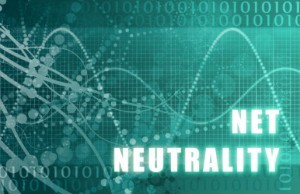The U.S. government’s Internet priorities in Europe are upside down. It has chosen bits over bodies, prioritizing protecting the neutrality of innumerable inanimate Internet bits over protecting peoples’ privacy and personal data.
The result is that the thousands of companies that depended on the U.S.-EU Data Safe Harbor for the free flow of information between America and Europe are rightly upset about the profound business uncertainty caused by the European Court of Justice knocking down the Data Safe Harbor last month.
A big reason for this upheaval is because the U.S. Government largely ignored and did little to mitigate the profound damage to transatlantic trust from the Edward Snowden NSA spying revelations in 2013.
Its main priority was not restoring a relationship of trust or showing a newfound respect for Europeans’ privacy, but it was pushing the EU to accept America’s net neutrality industrial policy as their own.
A big reason for this upheaval is because the U.S. Government largely ignored and did little to mitigate the profound damage to transatlantic trust from the Edward Snowden NSA spying revelations in 2013.
Its main priority was not restoring a relationship of trust or showing a newfound respect for Europeans’ privacy, but it was pushing the EU to accept America’s net neutrality industrial policy as their own.
The U.S. government has done little over the last two years publicly or privately to factually challenge the Snowden narrative that America was involved in “mass indiscriminate surveillance,” by making the case that there are real safeguards and limits to what the NSA can collect.
Making this privacy situation much worse over the last two years, global net neutrality champion and serial EU privacy scofflaw, Google, has been systematically refusing to comply with several EU Member States’ privacy directives to allow Europeans their right to opt out of Google’s collection of their private data.
Google also has been very public in its passive-aggressive opposition to another high-profile, European Court of Justice, privacy decision that enforced Europeans’ privacy right to be forgotten last year.
In 2013, Edward Snowden’s NSA spying revelations effectively exposed a chasm between American and European privacy law and expectations.
The European Court of Justice has made it doubly clear that Europeans have a right to privacy concerning how Big Internet companies collect and use Europeans’ private data in Europe and that the European Court of Justice will be vigilant in protecting Europeans’ privacy going forward.
In stark contrast, Big Internet companies’ lobbying in the U.S. has been very successful in ensuring that Americans have virtually no right to privacy concerning Big Internet companies. Both the U.S. Federal Trade Commission (FTC) and the U.S. Federal Communications Commission (FCC) have proven very weak Big Internet privacy enforcers.
Proof in point, just last week, the U.S. Federal Communications Commission denied a Consumer Watchdog petition to require that Big Internet companies honor “Do Not Track” requests from consumers, the European equivalent of a European user’s right to opt out of collection of their private data.
After promising publicly that the FCC would be vigilant in protecting Internet users’ privacy as a reason to justify the FCC’s assertion of “Title II” utility regulatory authority over the Internet to promote net neutrality, the FCC caved under pressure from Big Internet lobbying.
In rejecting the Consumer Watchdog “Do Not Track” petition, the FCC said: it “has been unequivocal in declaring it has no intent to regulate edge providers,” i.e. Big Internet companies.
For several years now the Federal Trade Commission has claimed it is interested in protecting consumers’ right to opt-out of unwanted data collection via a “Do Not Track” list for browsers, but the FTC has done nothing serious to make it happen.
What this tells us is the U.S. government’s self-serving, one-sided, Big Internet industrial policy, where “heads” Big Internet wins net neutrality protections and “tails” Big Internet wins on no new privacy obligations, is unlikely to survive the pending U.S.-EU Data Safe Harbor negotiations.
Just like the EU just passed its own version of net neutrality law that does not favor Big Internet interests over European Single Digital Market interests, don’t expect the EU to negotiate a Data Safe Harbor that favors Big Internet’s no right to privacy interests over the EU’s interests in ensuring a European’s right to privacy.
Scott Cleland served as Deputy U.S. Coordinator for International Communications & Information Policy in the George H. W. Bush Administration. He is President of Precursor LLC, an emergent enterprise risk consultancy for Fortune 500 companies, some of which are Google competitors, and Chairman of NetCompetition, a pro-competition e-forum supported by broadband interests. He is also author of “Search & Destroy: Why You Can’t Trust Google Inc.” Cleland has testified before both the Senate and House antitrust subcommittees on Google and also before the relevant House oversight subcommittee on Google’s privacy problems.





